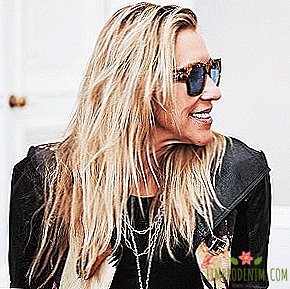Children are not statistics: What is the risk of stricter adoption rules?

Dmitry Kurkin
Head of the Ministry of Education Olga Vasilyeva called for a significant tightening of the rules of adoption in Russia. "We make a proposal to reduce the number of children that one family can adopt. Now we have eight in there. But this is not a family orphanage, this is another form!" - The official said at a meeting with journalists of Komsomolskaya Pravda. She later explained that she was opposed to a bill drafted by the Ministry of Education, which proposed banning adoptions from parents who already have three children (whether relatives or adoptive children). At the same time, Vasilyeva insisted on another controversial point of the upcoming law - "a mandatory psychological examination of not only candidates for adoptive parents, but also those who permanently live with them."
Several cases of violent death of adopted children, including the murder of a girl suspected by her adoptive father, became the reason for tightening the rules of adoption (in addition to those killed in the family, five more children were raised - hence, an essentially absurd limit proposed by the Ministry of Education) . “We analyzed all the tragic cases. My colleagues went to the regions where this happened and the results were disappointing. The selection of future parents was very careless,” said Vasilyeva.
There is a reasonable grain in the requirements of the Minister of Education: it is better to identify the potential problem before the child is adopted, and not after, when it turns out that he needs to be beaten off immediately. However, the decision chosen by Vasilyeva, firstly, will complicate the already utterly bureaucratized adoption process, secondly, once again shifts the responsibility from officials and employees of the guardianship agencies to citizens and, most likely, leads to a system error. "If, God forbid, in a family that was examined by psychologists, something happens to the child, who will answer? Assuming that you really can select excellent parents, you need those people who carried out the selection, plant, after tragedy happens with every child - this is the first thing that any psychologist who will work in this area think. Then he will write to everyone that they are not yet ready to be parents. They will kill the adoption as a whole, ”says lawyer on family and juvenile law Anton Zharov.
Hiding behind the care of children in general has become a bad habit of the Russian authorities.
Children will suffer from the short-sightedness and populism of officials. That is precisely those in whose interests, in words, and preparing a bill, already nicknamed the sequel to "the law of Dima Yakovlev." To hide behind the care of children in general has become a bad habit of the Russian authorities. “For the sake of children,” a ban on “promoting non-traditional sexual relationships” was adopted, depriving LGBT adolescents of the right to elementary psychological support. "For the sake of children" was adopted the so-called package of Spring, which allows you to declare extremists and judge repost on social networks of people who are barely fourteen years old.
This, of course, is very convenient - after all, children are not supposed to have their own opinion, which means that under the guise of caring for the younger generation, it is possible to drag even what hits on the children themselves. This is in excellent agreement with church rhetoric, which defends "the reasonable and moderate use of physical punishment by loving parents in raising a child." And if lawmakers treat children as a bargaining chip, there are no reasons because of which the performers "on the ground" suddenly begin to treat children differently. The Russian woman, Yulia Savinovskiy, in whom two adopted children were taken away after a mastectomy, cites the words of the guardianship employee: “We want children, we want them, we want them to take them back.”
What is significant: that the tragedies in families with foster children were the result of a flaw in the local juvenile services, says Vasilyeva herself, talking about "careless selection of parents." Findings? Reduce the chances of children to adopt. The approach is statistically flawless: the fewer children will be given to foster parents, the less likely they are to get into crime reports. The Ministry of Education does not use the same statistical methods for the first time: in 2017, the federal data bank on orphans and children left without parental care reported that the number of orphans in Russia decreased threefold, from 187 thousand to 51.8 thousand. And everything would be fine if at the same time the number of street children did not grow, which in the country, according to various estimates, from four to five million.
Photo:Andrey Yalansky - stock.adobe.com (1, 2)





